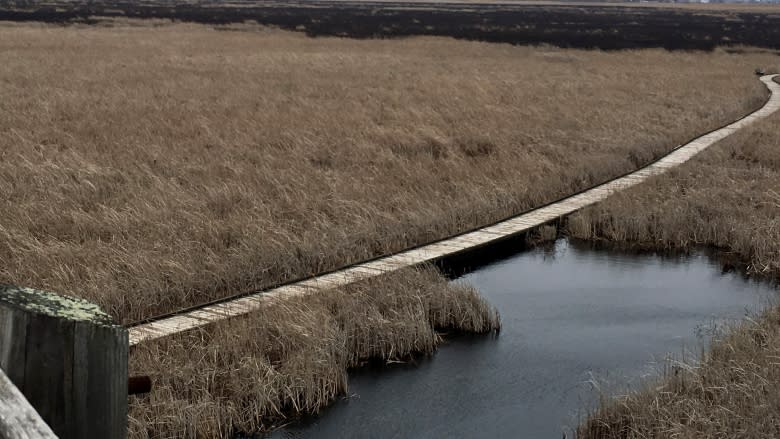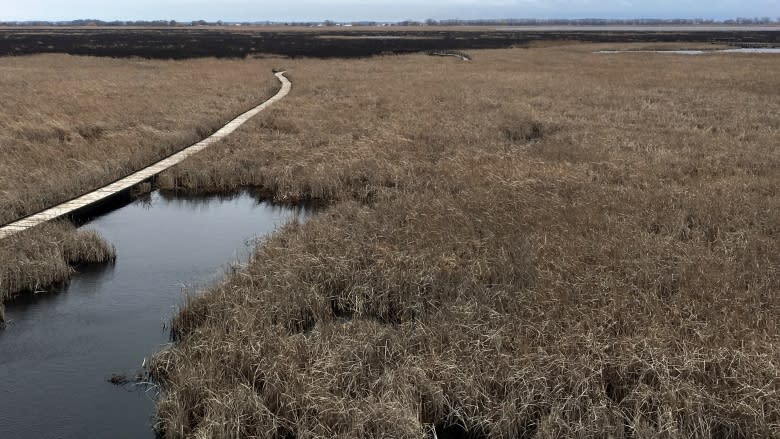Point Pelee marsh expected to thrive after wildfire
Burned-out marshland at Point Pelee National Park should bounce back better than ever with the possibility for new vegetation being introduced, say experts.
The country's southern-most protected habitat remained closed Thursday as Parks Canada assessed the 125 hectares of marsh that burned throughout the night and into the morning before finally going out.
Park policy allows for natural fires to burn out in a controlled environment in order to allow nature to run it course. The benefits of the fire is all part of a natural cycle, explained Dan Lebedyk, biologist with Essex Region Conservation Authority.
"Every few decades you'll get a wildfire running through," he said. "We do see — very quickly — a regeneration of the marsh. In many cases, we see many more different plant species than we had originally."
The last time there was a fire like this in the marsh was 1988. That blaze was caused by lighting, according to Parks Canada field superintendent for southwestern Ontario Louis Lavoie.
Lavoie was not surprised by the attention the fire, which started around sunset Wednesday, received on social media. People have a connection to these types of protected lands that are popular among visitors.
"A natural park is part of the fabric of a community," he said.
Park will recover
Most of the marshland consisted of thick cattail stand, Lebedyk told CBC, which can clog up the environment and prevent other species from thriving or growing at all. The fire has now eliminated that barrier.
"It will open it up and allow all of the other species to get a little bit more light," he said. "You should find the vegetation come back a little more diverse than it was."
Animals that live in the area were also likely safe, according to Parks Canada. Field superintendent for southwestern Ontario Louis Lavoie said many of the park's birds had not yet migrated back to the area after winter.
Most of the animals in the marsh at the time should have been able to get to safety in time because the fire moved so slowly.
"Any birds in the area had plenty of time to move out and, thankfully, very minimal damage would be done to their habitat," he said.
Officials expect the park to be open Friday once crews are able to remove the gear they used to control the fire.




